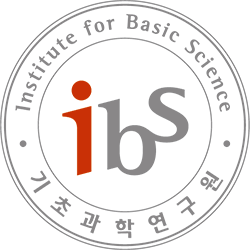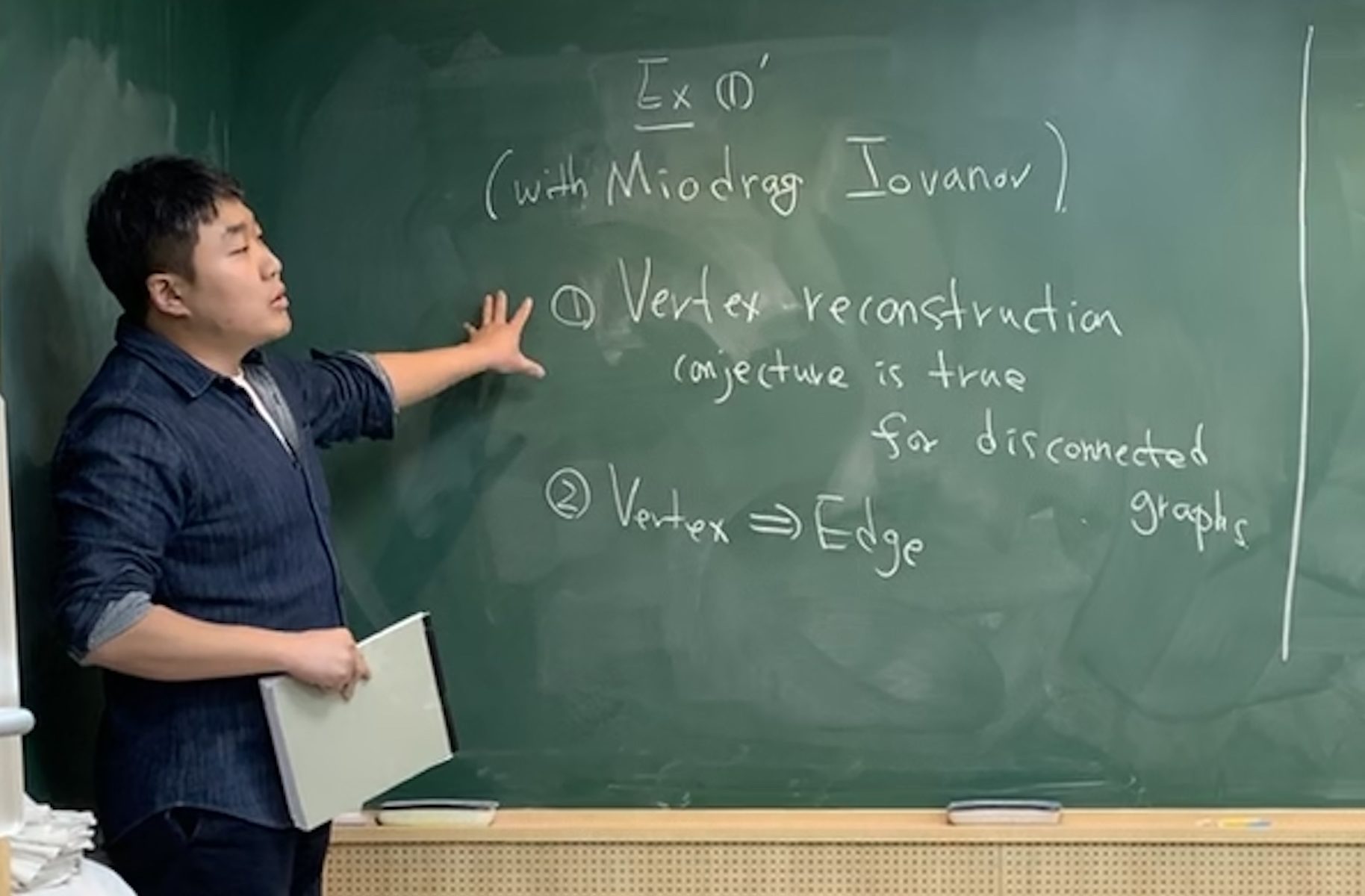On December 17, 2020, Jaiung Jun (전재웅) from SUNY New Paltz presented an online talk introducing multi-complexes and their Hopf algebra at the Virtual Discrete Math Colloquium. The title of his talk was “On the Hopf algebra of multi-complexes“.
(The photo above was taken last year in his other seminar talk.)
In combinatorics, Hopf algebras appear naturally when studying various classes of combinatorial objects, such as graphs, matroids, posets or symmetric functions. Given such a class of combinatorial objects, basic information on these objects regarding assembly and disassembly operations are encoded in the algebraic structure of a Hopf algebra. One then hopes to use algebraic identities of a Hopf algebra to return to combinatorial identities of combinatorial objects of interest.
In this talk, I introduce a general class of combinatorial objects, which we call multi-complexes, which simultaneously generalizes graphs, hypergraphs and simplicial and delta complexes. I also introduce a combinatorial Hopf algebra obtained from multi-complexes. Then, I describe the structure of the Hopf algebra of multi-complexes by finding an explicit basis of the space of primitives, which is of combinatorial relevance. If time permits, I will illustrate some potential applications.
This is joint work with Miodrag Iovanov.
On December 26, Thursday, Jaiung Jun (전재웅) from SUNY New Paltz gave a talk at the discrete math seminar held at KAIST. The title of his talk was “The Hall algebra of the category of matroids“.
To an abelian category A satisfying certain finiteness conditions, one can associate an algebra H_A (the Hall algebra of A) which encodes the structures of the space of extensions between objects in A. For a non-additive setting, Dyckerhoff and Kapranov introduced the notion of proto-exact categories, as a non-additive generalization of an exact category, which is shown to suffice for the construction of an associative Hall algebra. In this talk, I will discuss the category of matroids in this perspective.


